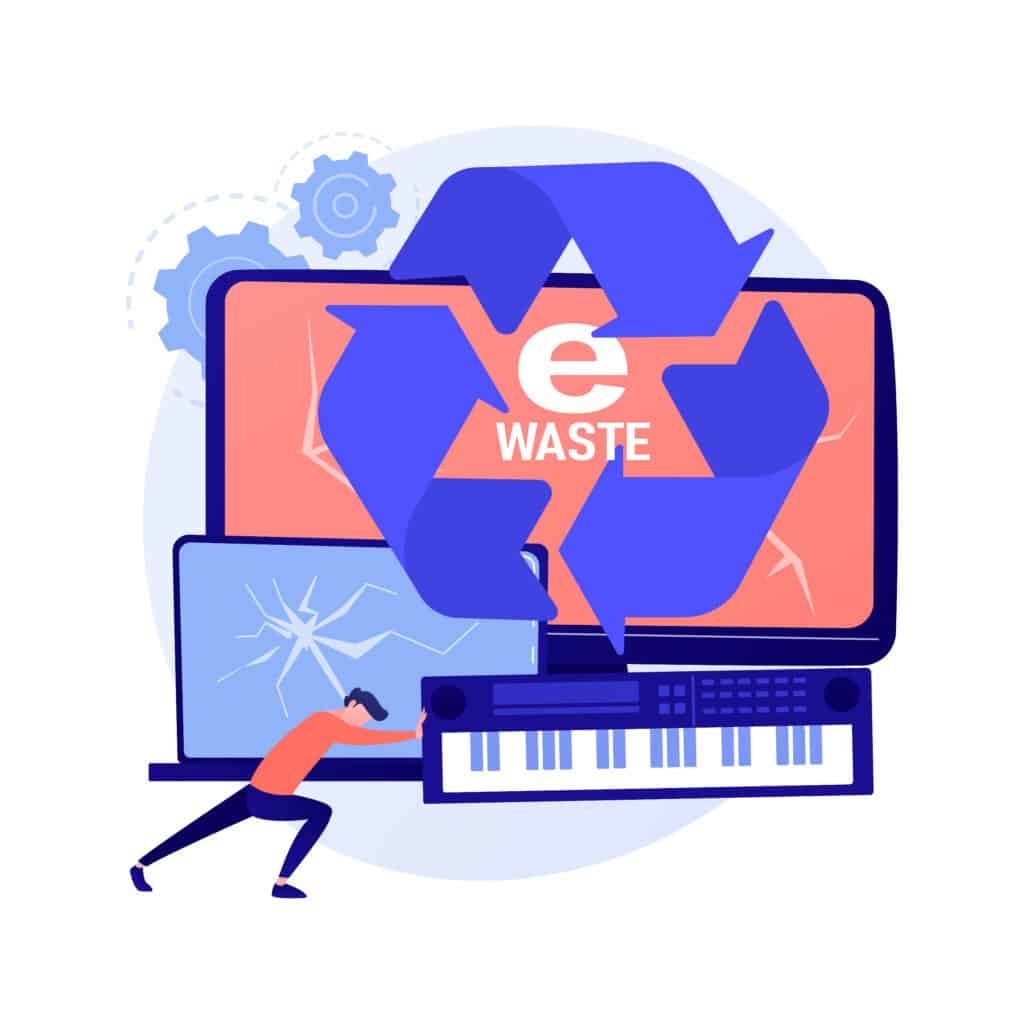
With new technological advancements coming up each day, electronic equipment has become part of most business operations. These devices enhance efficiency and productivity from laptops, smartphones, computers, and printers. However, with significant technological advancements, e-waste is becoming a big problem. This way, disposing of electronic garbage is essential for the environment and maintaining a positive corporate image. This guide will share several ways firms can effectively dispose of e-waste.
1. Consider Recycling Programs
One of the most environmentally friendly methods to control electronic waste is recycling programs. Most business areas have created e-waste recycling joints where you can drop off your outdated or unused electronic devices.
The centres are designed to sort, disassemble, and process the parts of electronic gadgets, keeping only the valuable details. Additionally, recycling aids minimize energy consumption and environmental effects of processing new devices.
2. Involve Responsible Disposal Services
You can dispose of your electronic waste by hiring skilled waste disposal services. These organizations are trained to effectively erase data from gadgets and then recycle or get rid of them in an environmentally friendly way. Additionally, disposal services follow the Weee directive regulations ensuring that your company’s sensitive information is not interfered with.
3. Opt for Manufacturer Take-Back Programs
Most electronics manufacturers have set take-back routines where they take old equipment for refurbishment or recycling. This strategy is adequate for most businesses because your manufacturer understands the good and can control its disposal effectively. Moreover, some manufacturers provide incentives like discounts on new gadgets and warranties in exchange for returning outdated equipment.
4. Donate and Reuse
If you have old devices that are still functioning and no longer need them, you can donate them to charities, non-profit organizations, or local schools. Most schools and community institutions welcome donations of laptops, computers, and other devices to enhance the digital divide. Donating old appliances can minimize your e-waste and contribute to a good cause, boosting your business’s social responsibility image.
Regulations Governing Electronic Waste Disposal
E-waste disposal is a critical process that requires great attention and measures. If not disposed of effectively, electronic gadgets can lead to significant health hazards. This way, government authorities worldwide have set rules and regulations to govern electronic waste disposal.
Waste Electrical and Electronic Devices (WEEE) Directive (EU)
The European Union’s WEEE Directive mandates the appropriate collection and recycling of e-waste across member states. It has set specific targets for electronic waste recovery and recycling rates. This ensures that a significant portion of electronic gadgets is diverted from landfills.
Export and Import Controls
Most countries restrict the export of e-waste to prevent it from being dumped in developing nations with lax environmental regulations. Import controls ensure that e-waste imported into a state matches local disposal standards.
Producer Responsibility
Most countries have set EPR programs necessitating manufacturers to take responsibility for the whole lifecycle of their goods. This involves appropriate disposal, collection, and recycling of electronic gadgets during production.
Bottom line
Disposing e-waste adequately is not just a responsibility but a chance to show your commitment to environmental sustainability and social responsibility. Opting for the above methods minimizes your business’s ecological footprint, saves some bucks, and improves your social image.
